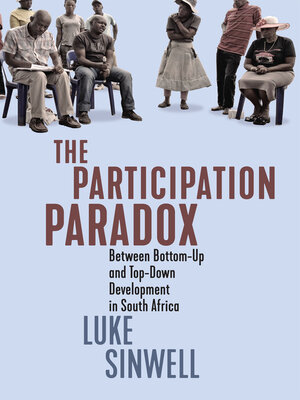The Participation Paradox
ebook ∣ Between Bottom-Up and Top-Down Development in South Africa · McGill-Queen's Studies in Protest, Power, and Resistance
By Luke Sinwell

Sign up to save your library
With an OverDrive account, you can save your favorite libraries for at-a-glance information about availability. Find out more about OverDrive accounts.
Find this title in Libby, the library reading app by OverDrive.



Search for a digital library with this title
Title found at these libraries:
| Library Name | Distance |
|---|---|
| Loading... |
The last two decades have ushered in what has become known as a participatory revolution, with consultants, advisors, and non-profits called into communities, classrooms, and corporations alike to listen to ordinary people. With exclusively bureaucratic approaches no longer en vogue, authorities now opt for "open" forums for engagement.
In The Participation Paradox Luke Sinwell argues that amplifying the voices of the poor and dispossessed is often a quick fix incapable of delivering concrete and lasting change. The ideology of public consultation and grassroots democracy can be a smokescreen for a cost-effective means by which to implement top-down decisions. As participation has become mainstreamed by governments around the world, so have its radical roots become tamed by neoliberal forces that reinforce existing relationships of power. Drawing from oral testimonies and ethnographic research, Sinwell presents a case study of one of the poorest and most defiant Black informal settlements in Johannesburg, South Africa – Thembelihle, which consists of more than twenty thousand residents – highlighting the promises and pitfalls of participatory approaches to development.
Providing a critical lens for understanding grassroots democracy, The Participation Paradox foregrounds alternatives capable of reclaiming participation's emancipatory potential.







